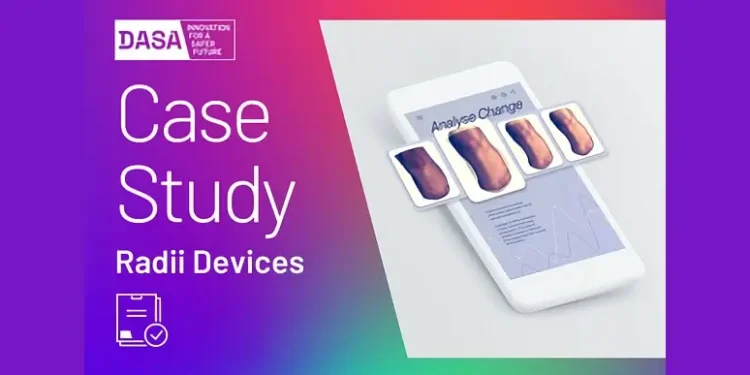Every day, countless veterans face the physical and emotional challenges of wearing prosthetic limbs. Comfort isn’t just a luxury—it’s essential for maintaining independence and quality of life.
Thanks to funding from the Defence and Security Accelerator (DASA), a pioneering UK start-up is now redefining prosthetic care with cutting-edge technology.
Addressing Gaps in Prosthetic Care
For veterans, a well-fitted prosthetic socket can mean the difference between thriving and simply coping. Yet, traditional care processes often overlook the nuances of daily discomfort.
As one veteran put it, “When you get fit in hospitals, it’s not reflective of everyday life.”
Radii Devices, an SME born out of the University of Southampton, recognised this gap and embarked on a mission to improve communication between prosthetic wearers and clinicians.
Through DASA’s “Veterans’ Health Innovation Fund,” Radii Devices gained the resources to revolutionise how socket comfort is measured and addressed. This initiative aligns with the Office for Veterans’ Affairs’ commitment to enhancing the physical and mental healthcare of those who have served.
Development Through Collaboration
The journey from idea to innovation was underpinned by collaborative efforts. Radii Devices followed a three-stage approach to ensure its solution addressed real-world needs:
Stage 1: Understanding User Needs
The team engaged with 20 stakeholders, including veterans and healthcare professionals, to gain insights into the day-to-day challenges of prosthetic use. Partnering with Blesma, The Limbless Veterans, these consultations laid the foundation for their innovative application.
Stage 2: Co-Designing Solutions
Veterans and clinicians worked alongside Radii Devices to refine prototypes. Collaborative workshops ensured that the app met the dual goals of empowering users and enhancing clinical practices. “We wanted to bring a solution that genuinely improved the lives of veterans while supporting clinicians,” said Jenny Bramley, the Clinical Lead.
Stage 3: Creating a Prototype
The result was a user-friendly app that allows veterans to:
- Track socket comfort scores.
- Log daily activities and specific issues.
- Build comprehensive comfort profiles over time.
Features of the App
Feature |
Benefit |
|---|---|
| Comfort tracking scores | Provides data for more precise adjustments. |
| Daily activity logging | Offers context for socket performance. |
| Comprehensive profiles | Enables continuous, data-driven improvements. |
Early feedback from veterans has been overwhelmingly positive. By offering actionable insights, the app bridges the gap between clinical appointments and daily experiences.
Gaining International Recognition
The success of this project didn’t go unnoticed. DASA’s support helped Radii Devices capture the attention of the US Department of Veterans Affairs (VA). Now, the SME is part of a groundbreaking initiative to modernise prosthetic care for American veterans, working alongside global tech leaders like HP Inc.
CEO Joshua Steer emphasised the importance of partnerships, stating,
“Nothing great is built alone. With DASA’s support, we’re bringing better comfort and quality of life to prosthetic wearers worldwide.”
A New Standard for Prosthetic Care
This innovation represents a significant step forward in addressing the fragmented nature of prosthetic fitting. By leveraging technology and collaboration, Radii Devices is not only improving veterans’ lives but also setting a new global benchmark for orthotics and prosthetics care.
With continued support and international partnerships, the future of prosthetic care looks brighter than ever. Veterans, once limited by inadequate systems, are now at the forefront of this transformative journey.
Sources: THX News & Defence and Security Accelerator.









